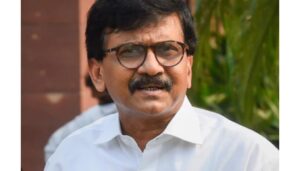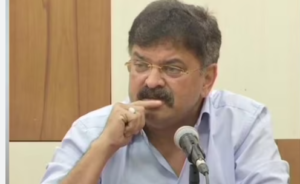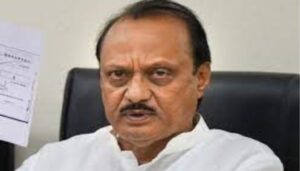
Election Commission’s Verdict: Sharad Pawar’s Faction Faces Setback, Ajit Pawar Emerges Victorious: BJP’s Secret Strategy Revealed?
Varad Bhatkhande
New Delhi, 6th February 2024: The Election Commission ruled in favour of Ajit Pawar, granting him the NCP symbol, after disputes over internal organizational elections. The decision came after over 10 hearings spanning six months, citing inconsistencies in Sharad Pawar’s group’s claims of organizational majority. Sharad Pawar’s faction received a special concession to comply with election rules, allowing them to claim a new political formation by providing three preferences to the Commission by February 7, 2024.
in July 2023, Ajit Pawar joined the NDA government in Maharashtra, assuming the role of deputy chief minister alongside the majority of NCP MLAs. His resignation as Leader of the Opposition preceded the swearing-in ceremony, where he joined CM Eknath Shinde and Deputy CM Devendra Fadnavis as the ruling party in Maharashtra. Ajit Pawar submitted support from 35 NCP MLAs before the ceremony. His entry mirrored CM Shinde’s defection from Shiv Sena, with the state now having left with two deputy chief ministers.
The Election Commission resolved the factional dispute within the Nationalist Congress Party (NCP) by declaring Ajit Pawar’s faction as the legitimate NCP. Ajit Pawar’s group received the NCP symbol ‘Wall Clock’. Ajit Pawar accepted the decision gracefully, while Sharad Pawar was granted time to name his new political formation. The decision followed over 10 hearings and legal tests, including organizational and legislative majority. Ajit Pawar plans to convene a meeting with NCP ministers and MLAs. The Election Commission’s ruling signifies a conclusion to the prolonged internal conflict, providing clarity on the party’s leadership and direction.
The recent ruling has consolidated the Bharatiya Janata Party’s (BJP) influence in Maharashtra, positioning them as a dominant force within the state’s political landscape. Notably, there appears to be a lack of visible opposition to challenge their stronghold. The coalition government led by Shinde, Fadnavis, and Pawar is once again emerging as a frontrunner for re-election in Maharashtra. Critics and opposition leaders have frequently accused the BJP of employing conspiratorial tactics, particularly through the purported misuse of federal agencies like the Enforcement Directorate (ED) to intimidate opposition-led states. Despite these allegations, the current circumstances indicate that the BJP maintains a firm grip on Maharashtra, setting the stage for their advantageous positioning in the forthcoming Lok Sabha and Vidhan Sabha elections.
In response to Ajit Pawar being allocated the NCP name and symbol, MP Supriya Sule, a prominent figure within the Sharad Pawar faction and daughter of Sharad Pawar, remarked, “Our documents were fine. The founder member and founder leader of this party is only Sharad Pawar…But now the atmosphere is something else right now. There is an ‘adrishya shakti’ (Invisible Power) in the country which is doing all this. We will fight…We will go to the Supreme Court.”
In response to the Election Commission’s decision, DCM Devendra Fadnavis tweeted on X, expressing, “Deputy Chief Minister Ajitdada Pawar, a crucial member of our Grand Alliance, has been formally acknowledged by the Election Commission as representing the NCP party alongside its watch symbol. I extend sincere congratulations to him, as well as to all colleagues and workers involved.” On the same occasion, DCM Ajit Pawar stated on X, “We humbly accept the decision rendered by the Election Commission following the presentation of our legal team’s arguments.”
The political landscape of Maharashtra underwent significant shifts as rebel Shiv Sena leader Eknath Shinde and NCP leader Ajit Pawar assumed key roles in the state government. Shinde, supported by BJP MLAs and rebel Shiv Sena members, became Chief Minister, succeeding Uddhav Thackeray. Meanwhile, Ajit Pawar, along with eight NCP MLAs, joined Shinde’s government as Deputy Chief Minister. The BJP’s strategic support for both Shinde and Pawar reflected complex political dynamics aimed at consolidating power and advancing Hindutva ideology. These developments marked a culmination of internal rifts within Shiv Sena and NCP, reshaping alliances and power structures in Maharashtra’s political landscape.
On January 10th, the Maharashtra Assembly Speaker validated Eknath Shinde’s Shiv Sena faction, rejecting disqualification and acknowledging Uddhav Thackeray’s majority MLA proposal, consolidating Shinde’s position. Notably, historical precedent includes Sharad Pawar’s 1978 rebellion against then Maharashtra’s Chief Minister Vasantdada Patil, forming the Indian National Congress (Socialist) and allied with the Janata party and the Peasants’ and Workers’ Party of India (PWP) to form a coalition government, highlighting Maharashtra’s intricate political dynamics.
As the current situation unfolds, the Bharatiya Janata Party (BJP) appears to be steadily progressing towards its goal of surpassing 400 seats in the forthcoming elections. Despite initial vulnerabilities in securing support from regional parties, alliances with influential leaders such as Pawar and Shinde have bolstered the BJP’s prospects. This trajectory suggests that the BJP is poised to not only achieve its target in Lok Sabha but also maintain strong positions in the Vidhan Sabha elections.

















